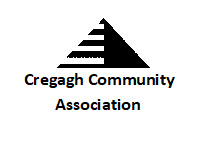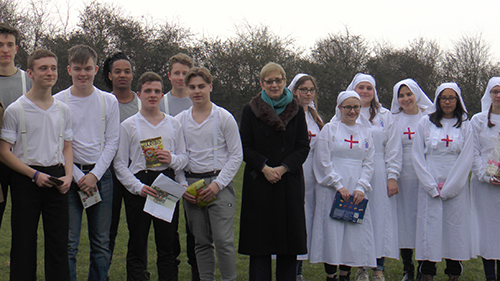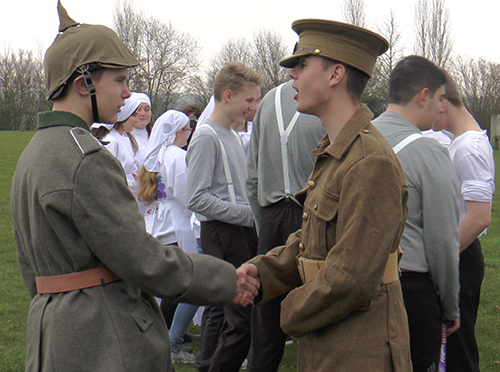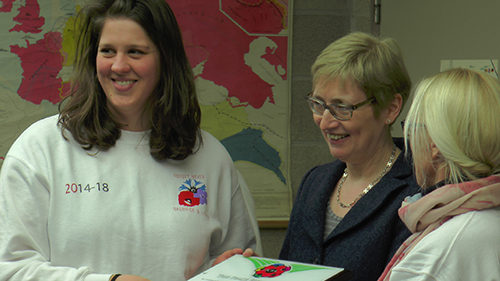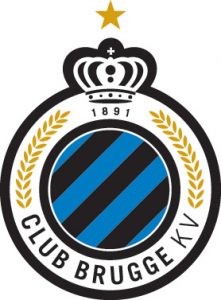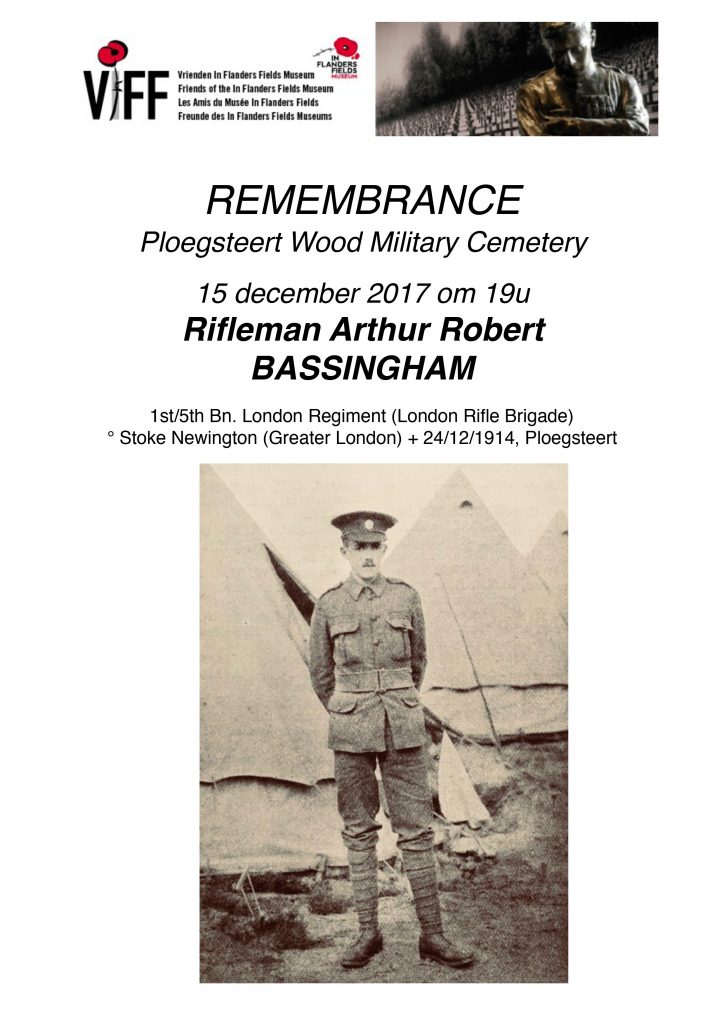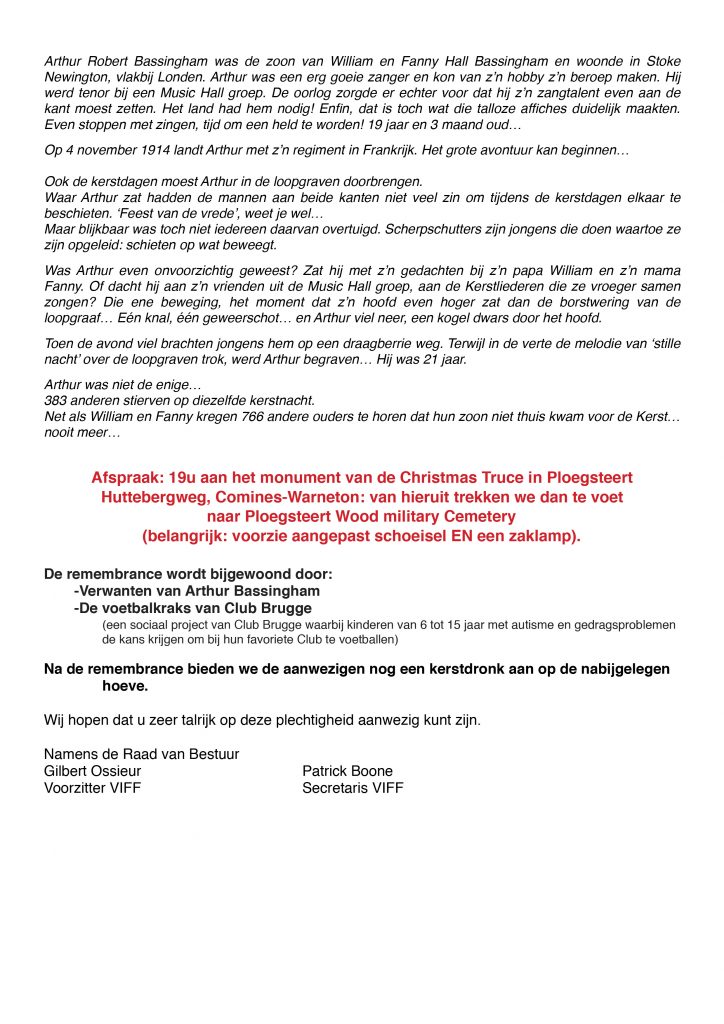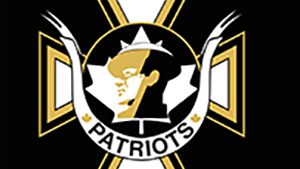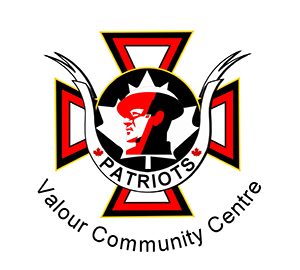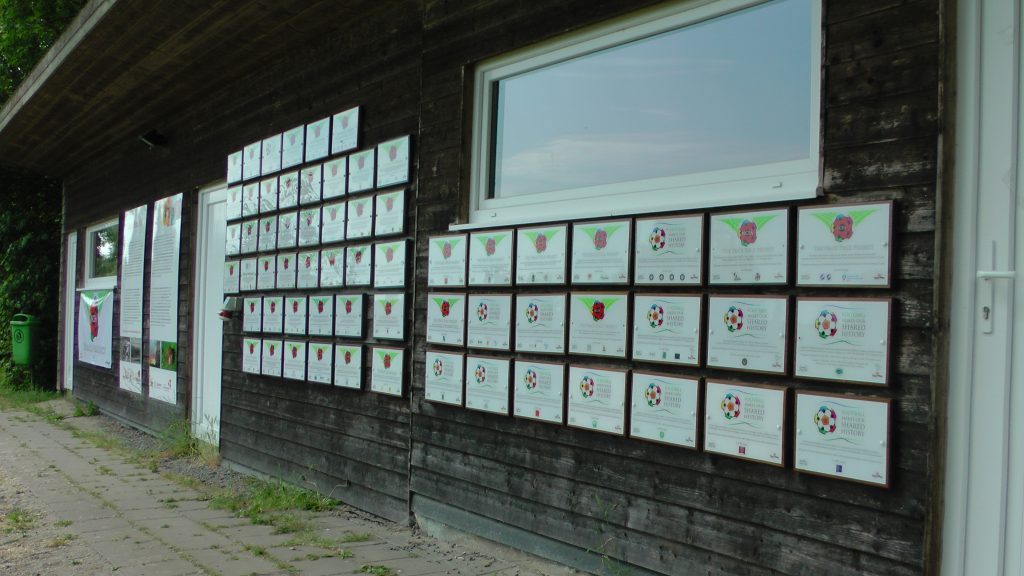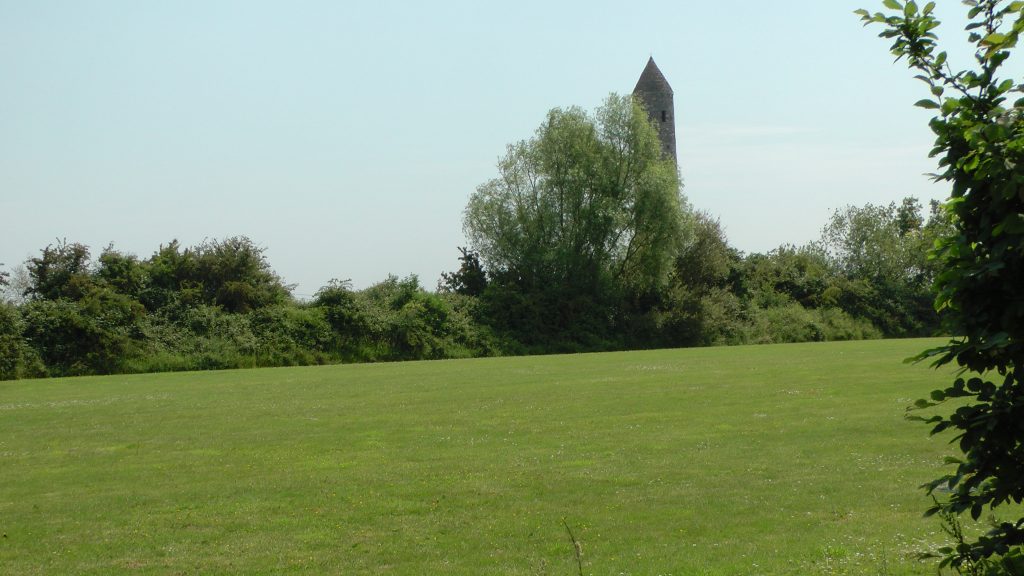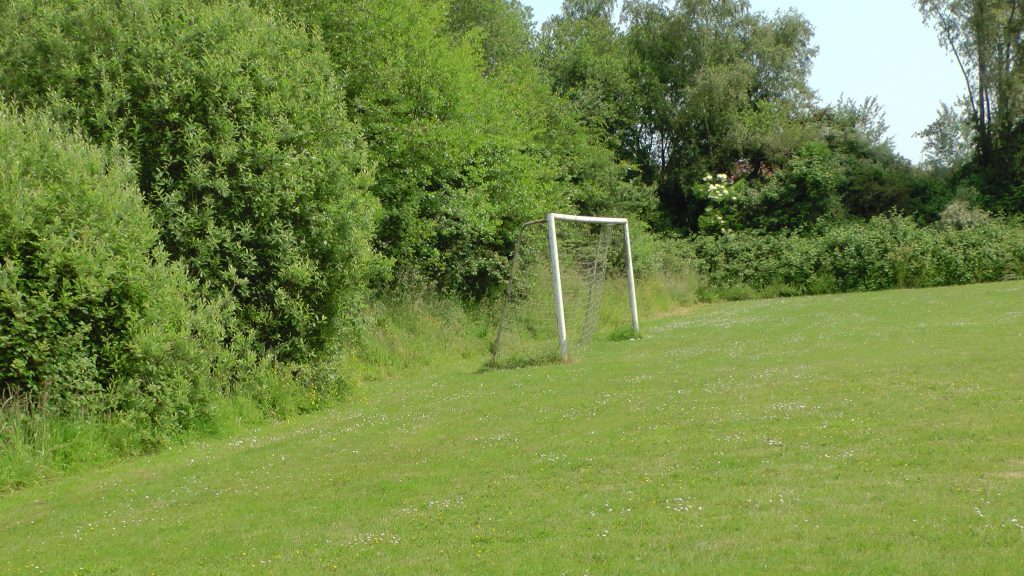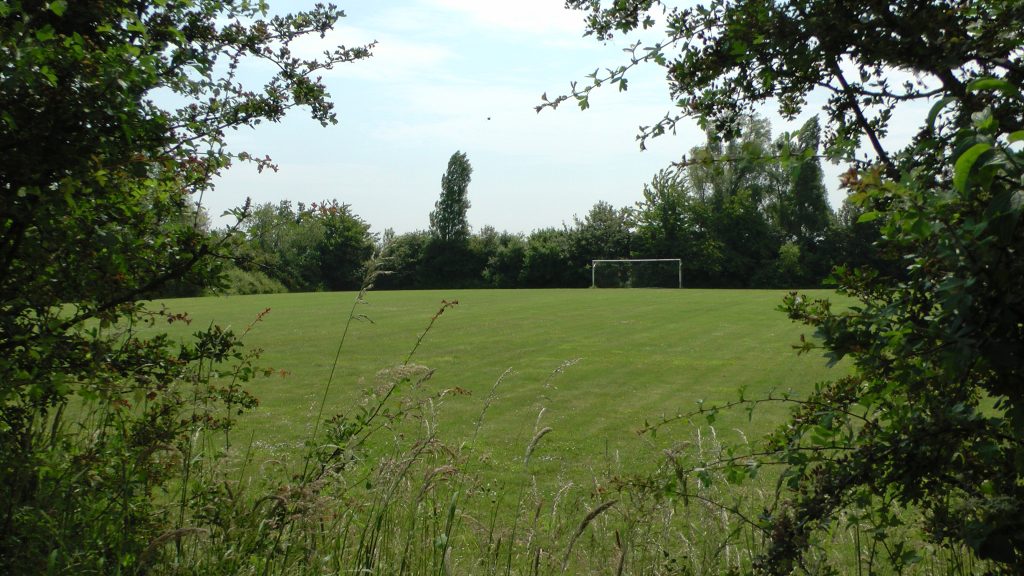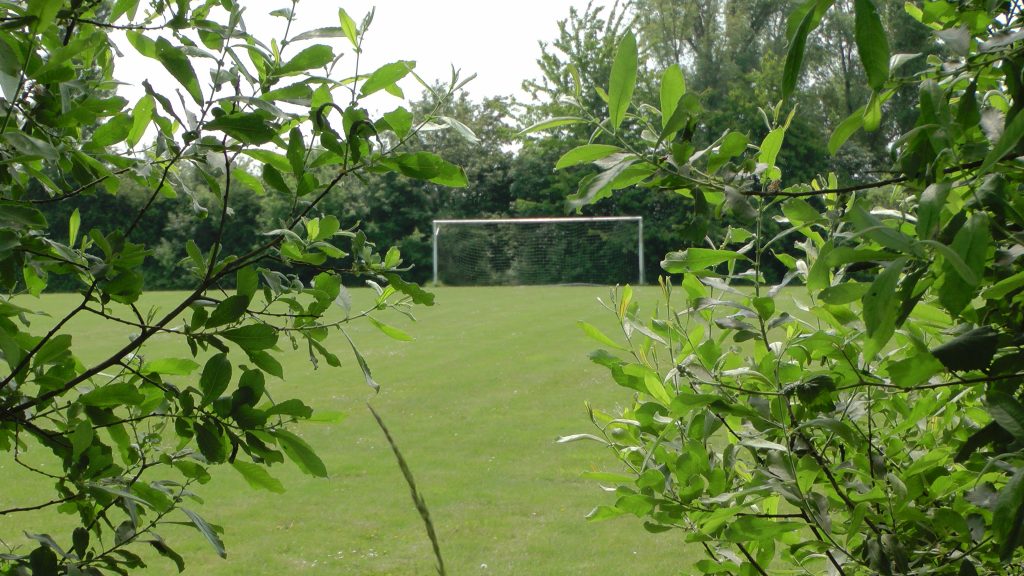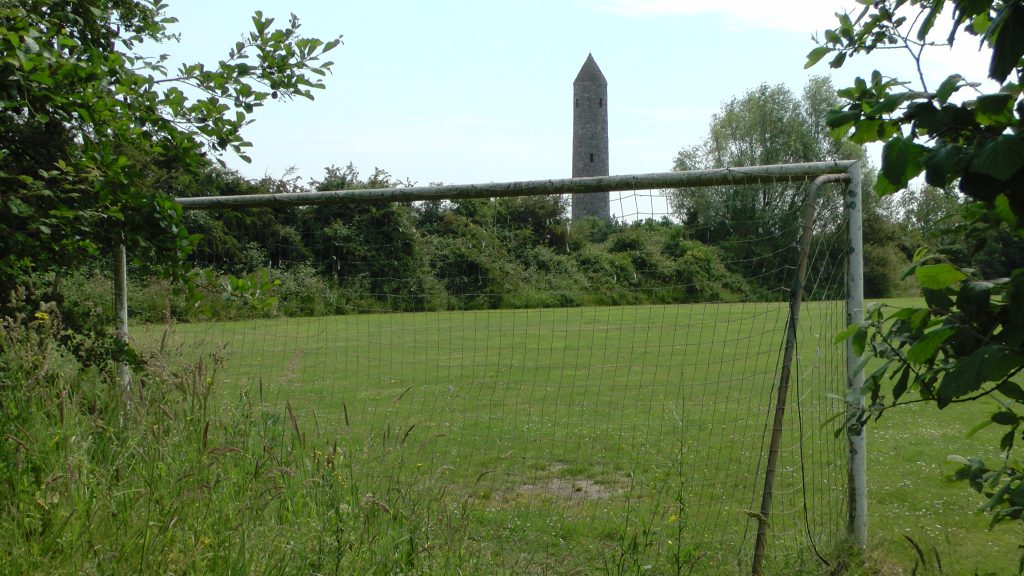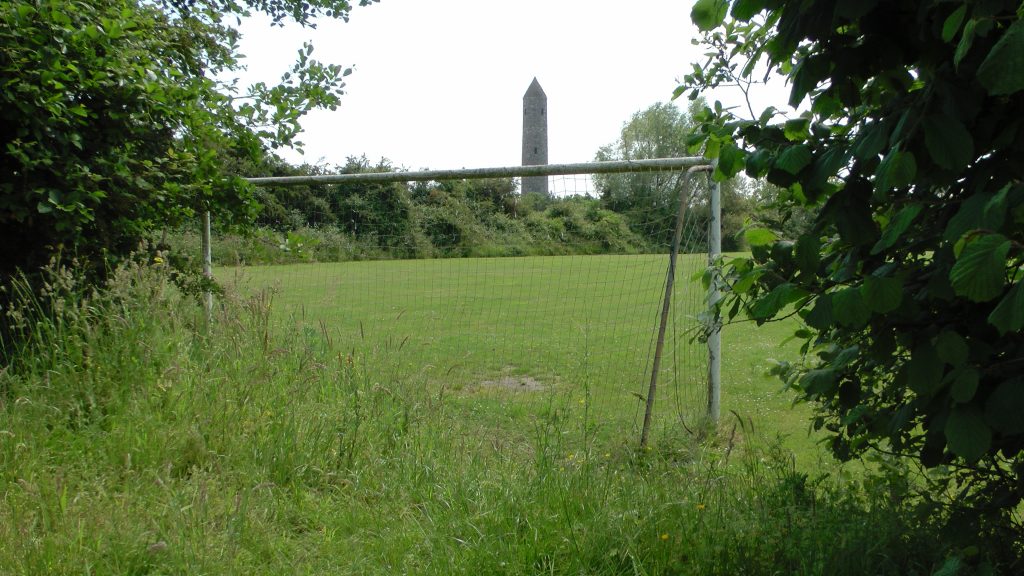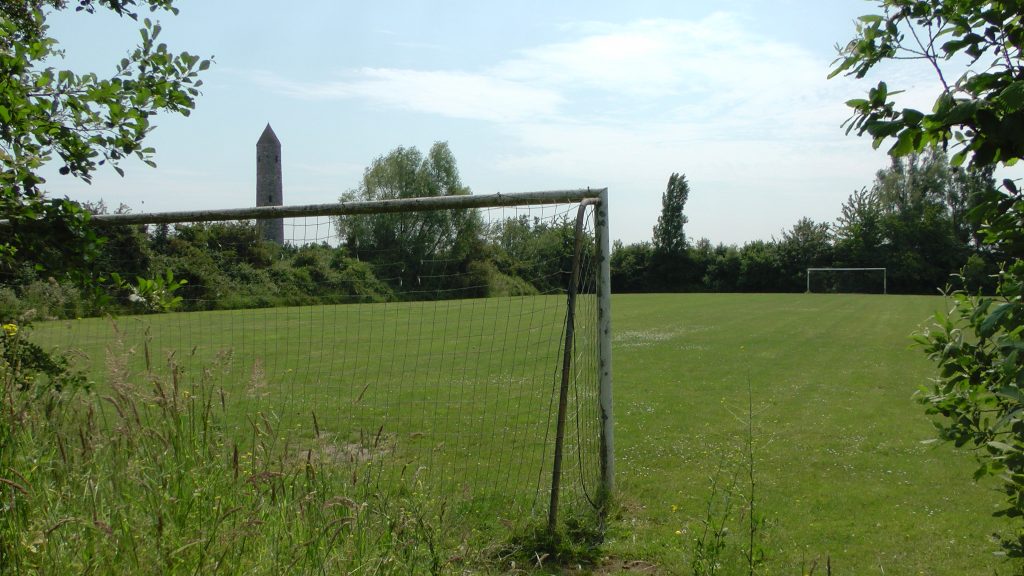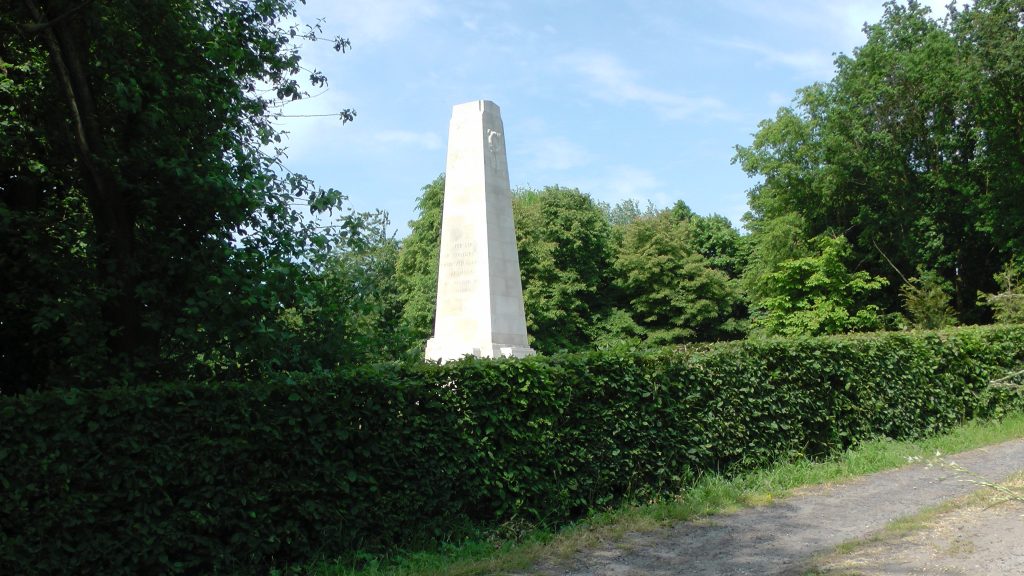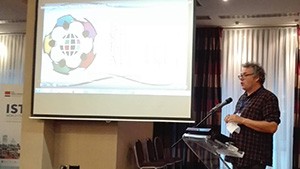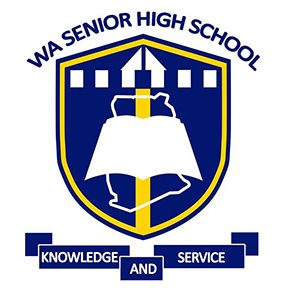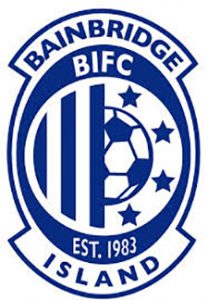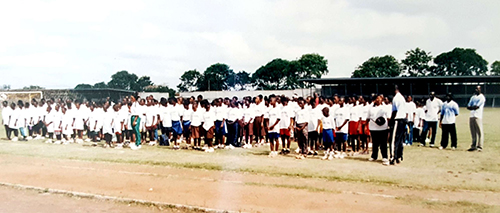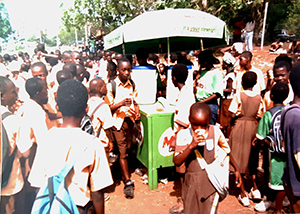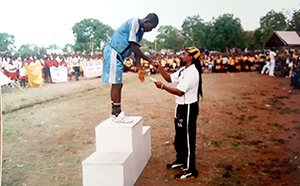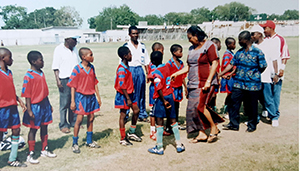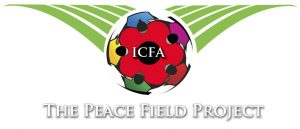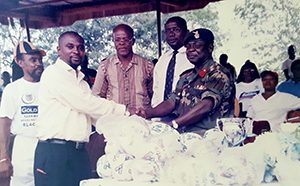The football pitch that helped make George Best a football legend is to be a
“Peace Pitch”.
Cregagh Green is where Best, renowned as one of the greatest ever footballers, first flashed his meteoric talent as a schoolboy in the 1950s.
It is situated in the east Belfast housing estate where he grew up.
It is the first pitch in Northern Ireland to twin with Flanders Peace Field, site of the 1914, First World War, Christmas Truces.
Cregagh Community Association with the support of Belfast City Council recognised the value of The Peace Fields Project, commemorating the First World War and celebrating peace.
The NCFA highlighted the connection of one of Northern Ireland’s greatest ever sportsmen that brought communities together with men and women, from the same communities that fought side by side in the First World War.
The Cregagh Green open space is protected “in perpetuity” through a legal deed of dedication between Belfast City Council and the Fields in Trust organisation.
Best’s legacy is truly celebrated in his home country. His legacy still brings communities together – the connection with the humanitarian at the Christmas Truces witnessed German and Allied soldiers come together, to play the game that inspired a legend.
Best was voted European Footballer of the Year in 1968 as he helped Man Utd win the European Cup, scoring twice in the 5-1 win of Benefica.
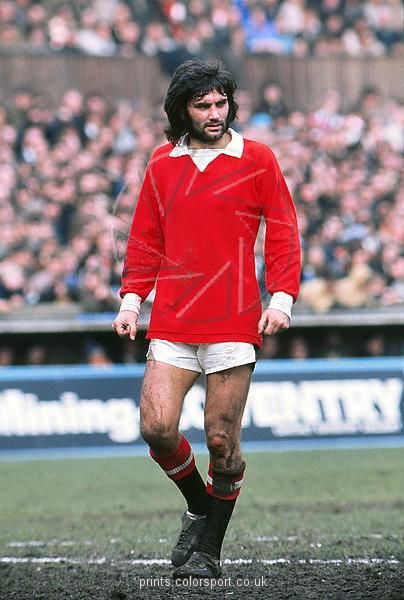
Football – 1971 / 1972 First Division – Coventry City 2 Manchester United 3
United’s George Best at Highfield Road.
01/04/1972
He was nicknamed El Beatle afterwards, at the height of Beatlemania.
Brazilian star Pele also reputedly described him as the greatest footballer in the world.
George Best became one of the greatest football icons of his day celebrated by all members of the community. His talent and determination spoke to a generation of young people that identified with his passion for the beautiful game.
George was the poster that boys and girls had on their bedroom wall. He was simply a cut above the rest.
George Best brought communities together and football was his domain for creative expression.
Robin McCabe, a childhood friend of Best, remembers playing against him on Cregagh Green.
“All we did was play football from morning to night,” he told BBC Radio Ulster.
“There was 10-a-side, 12-a-side, 15-a-side, everybody played, we were lucky we had a ball sometimes.
“Everybody played together – North Bank, which was the part George lived in, I lived at South Bank.
“We played challenge matches between North Bank and South Bank, maybe 20-a-side after teatime at night, you know, it just went on and on.
“We always thought that he needed a ball for himself and the rest of us needed a ball.
“Geordie, as he was called in them days, he ate the ball – he didn’t pass too much, but he was a great dribbler and everybody kicked him and he kicked everybody else and that’s just the way it was.”
Football is the peoples game. History is peppered with the power of football. The Peace Fields Project is a cross curricular peace education programme. It contextualizes history and inspires young people to become peace makers for the future.
